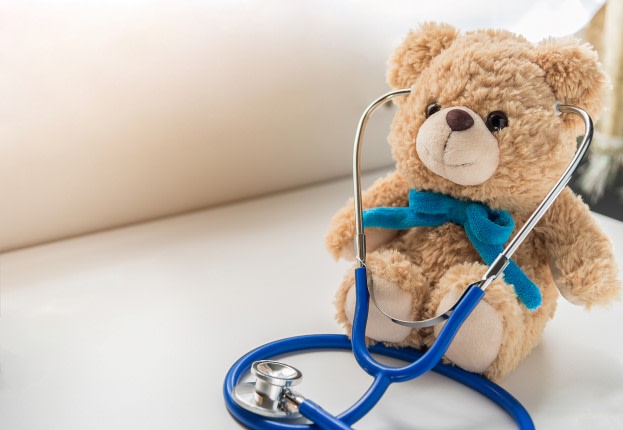What is paediatrics?
Paediatrics is a medical specialty dealing with children, from intrauterine life (see obstetrics ) to the end of adolescence. By focusing on nutrition and monitoring the growth and development of children, paediatrics plays an important role in prevention and detection, focusing on diagnosing and treating pathologies that can affect children’s health. Today, the paediatrician, who often practices in close collaboration with other healthcare professionals, education professionals and social workers, is a key player in a child’s development.

What does a paediatrician do?
As a general practitioner for children, the paediatrician is responsible for the health, growth and development of a child, both physical and mental. A key contact for a child’s parents, the paediatrician advises them on nutrition, sleep, hygiene and accident prevention. They are also responsible for the early detection of certain diseases and the monitoring of vaccinations. If a child presents symptoms of illness, the paediatrician, if possible, asks about the condition, carries out clinical testing and prescribes additional examinations (blood, urine, ultrasound, etc.) to determine the appropriate treatment for the clinical context and child’s age.
When to see a paediatrician
In early childhood, where rapid growth weakens the body, consultations with a paediatrician, reimbursed by Social Security, are mandatorily scheduled: monthly up to six months, quarterly up to one year, three times a year up to two years and twice a year up to six years. The paediatrician will measure the child’s height and weight, check motor and sensory development, vision and hearing, and perform vaccinations. In all cases, if a child shows signs or symptoms of a disease, whether childhood or other, parents should not hesitate to consult a practitioner: a paediatrician provides care, even if this means referring the child to other specialists depending on the organ concerned, if deemed necessary. In paediatric emergencies, a consultation may be justified in case of high fever, with signs of convulsions, unexplained severe pain, respiratory symptoms (bronchiolitis in babies, persistent asthma attacks, etc.), persistent diarrhoea and vomiting, etc. Depending on their severity, falls, burns or bruises also necessitate a consultation in a paediatric emergency department.
How to choose a pediatrician
Although the choice of paediatrician depends on the parents’ conditions (sex, age, whether they are associated with a specific health facility, paediatric centre, etc.), it is important to ensure that the paediatrician is available. Whether through word of mouth, advice from your GP or pharmacist, or other route, there is no shortage of sources to identify the paediatrician who meets the expectations of all concerned. General practitioners can also easily assume this role if they accept to do so.
Vos questions fréquemment posées sur la pédiatrie
Quelles sont les branches de la pédiatrie en pratique ?
La pédiatrie est une spécialité qui suit les enfants depuis leur naissance jusqu'à l'âge adulte. Le néonatologiste est un pédiatre qui s'occupe spécifiquement des nourrissons. Outre la néonatalogie, la pédiatrie a pour rôle d'effectuer le suivi du développement de l'enfant, à la fois psychomoteur et physiologique, tout en suivant les maladies courantes ou rares...















